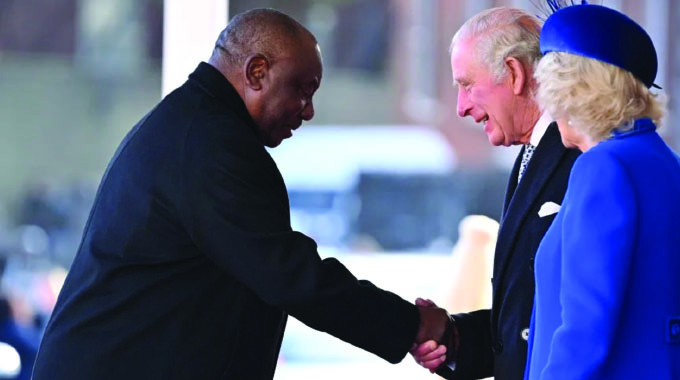UK to support SA’s green hydrogen plans with funding

The UK government intends to support South Africa’s plans to develop a green hydrogen sector with grant-funded technical assistance.
The announcement was issued on Tuesday morning as President Cyril Ramaphosa embarked on a state visit to the UK this week.
The grant funding — a figure of which has not yet been disclosed — is part of the UK’s contribution to the Just Energy Transition Partnership.
At COP27, Ramaphosa shared that he had asked the International Partners Group that initially pledged US$8,5 billion to aid South Africa’s transition, and which includes the UK, to improve the grant funding component of their pledge.
Green hydrogen — which is produced using renewable electricity and, therefore, less carbon intensive than traditional fuel sources — is one of the green industries South Africa seeks to develop through the JETP. Other sectors critical to decarbonising the South African economy that will benefit from the JETP are the electricity sector and transport, specifically through the development of electric vehicles.
The initiative on green hydrogen is linked to the UK’s Partnering for Accelerated Climate Transitions (UK PACT) programme.
The UK PACT has already been involved in knowledge sharing for the development of South Africa’s Hydrogen Society Roadmap, released earlier this year.
The programme has also funded studies on the employment opportunities and skills needed for South Africa’s green hydrogen economy.
The partnership between the two countries involves the continuous exchange of knowledge, with the UK sharing its experiences and lessons in developing the Tees Valley Hydrogen Hub.
South Africa also wants to develop its own hydrogen valley.
For this reason, Minister of Higher Education, Science and Innovation Blade Nzimande intends to visit Teesside to learn about the regional development opportunities enabled through a green hydrogen sector.
There will also be academic cooperation between the UK’s Teesside University and Stellenbosch University in South Africa, allowing for the sharing and exchanging of best practices. The UK’s Teesside University had been instrumental in building a regional hydrogen economy.
The UK government also flagged an upcoming US$5 billion investment by a UK company — Hive Energy — to build a green ammonia plant in South Africa. The plant will create local jobs while presenting an economic opportunity for the UK and other firms involved in the project.
Foreign Secretary James Cleverly said that the two countries would also announce the creation of a Partnership on Minerals for Future Clean Energy Technologies, seeing as the southern African region’s countries are leading producers of minerals for clean technologies. For example, these include platinum group metals, used for hydrogen production; and vanadium and manganese, used for battery storage. The partnership will focus on the “responsible” exploration, production and processing of these minerals.
There is also a new education and skills partnership between the countries to promote youth employment. The details have not been unpacked — but UK funding will be used to develop technical and entrepreneurial skills in green industries like electric vehicle manufacturing.
Infrastructure
In a statement, UK Prime Minister Rishi Sunak also shared that the two countries will continue to work together on their infrastructure partnership.
“… We have ambitious plans to turbocharge infrastructure investment and economic growth together,” said Sunak.
“I look forward to welcoming President Ramaphosa to London this week to discuss how we can deepen the partnership between our two great nations and capitalise on shared opportunities, from trade and tourism and security and defence,” he added.
The UK and South Africa entered into a Memorandum of Understanding earlier this year – allowing the UK to share technical knowledge, advice, skills and expertise with South Africa to address capacity gaps in preparing infrastructure projects to attract finance on the market.
“The Infrastructure Partnership will support South Africa to translate budget commitments into more high quality, bankable projects that can be brought to market,” the UK government said in response to questions from News24.
In turn, UK companies would enter into competitive bidding processes — in line with South Africa’s procurement legislation — to participate in infrastructure projects worth £5,37 billion (R110 billion) over the next three years.
“Our partnership with Infrastructure South Africa has already supported the development of a quality pipeline standing at approximately R400 billion of priority projects to be brought to market…” the UK government said. South Africa is the UK’s biggest trading partner in Africa, with trade worth £10,7 billion (R220 billion) annually — News24.com










Comments